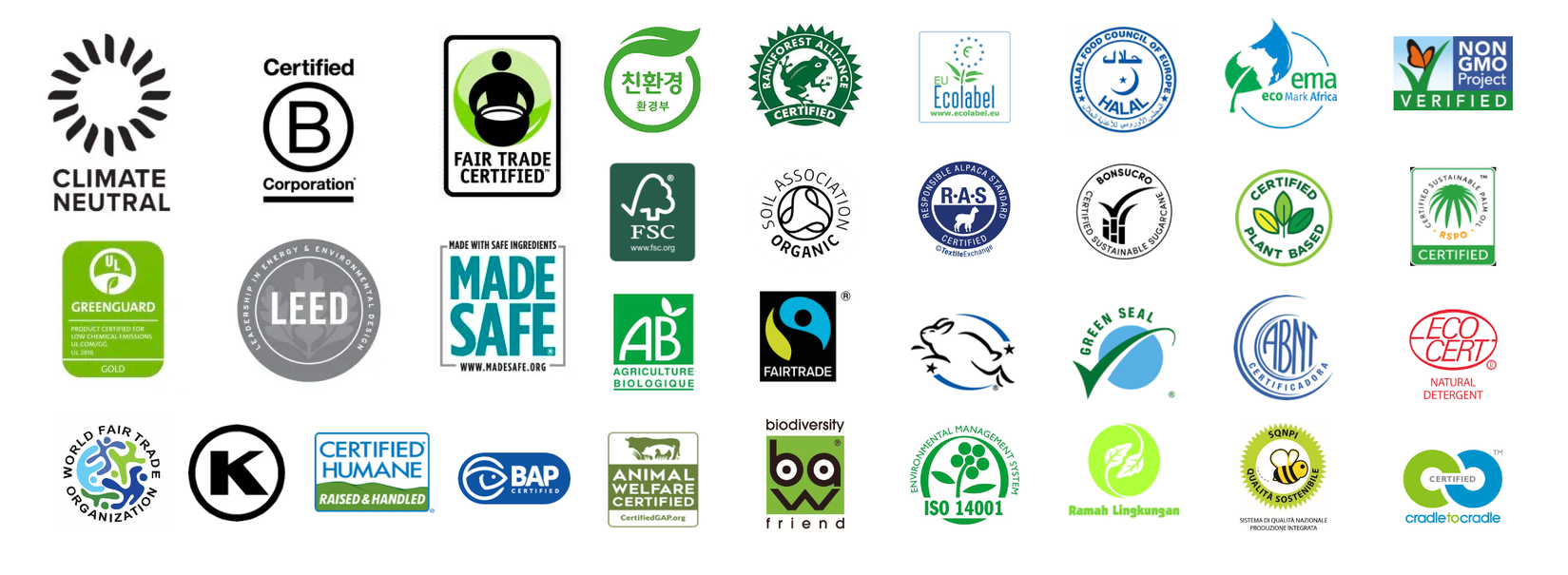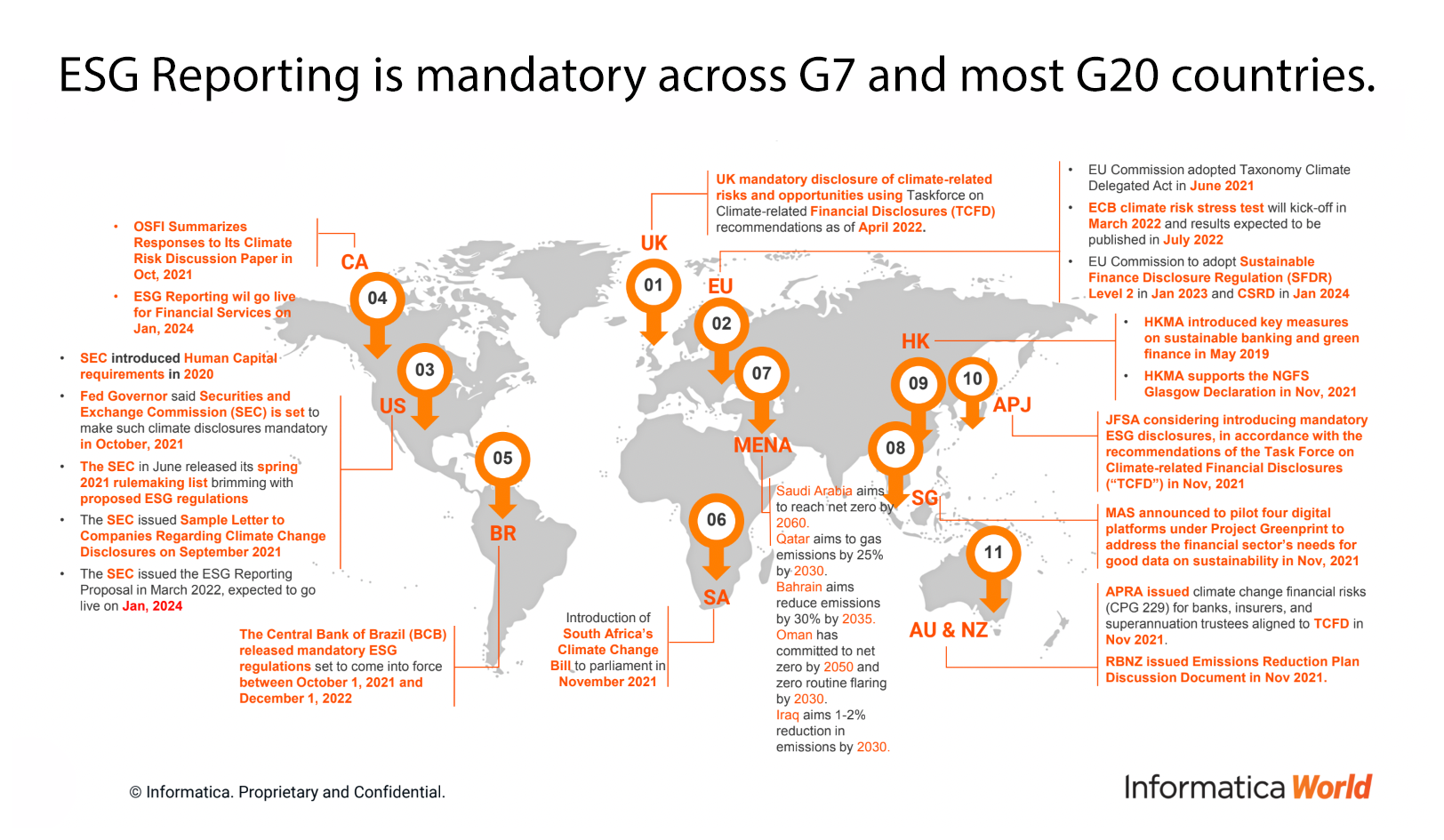ESG Certifications and Data Management:
A Comprehensive Guide.
What are ESG certifications, and what’s the purpose of them?
ESG certifications are a way for businesses to demonstrate their commitment to sustainability and responsible business practices. The history can be traced back to the early 1990s, when the first Social Responsibility Investment (SRI) funds were launched, investing in companies that met certain social and environmental criteria. In recent years, ESG certifications have become increasingly popular, due to a number of factors, including:
- Increased awareness of ESG issues among investors and consumers
- Growing demand for sustainable investments
- Regulatory pressure on companies to improve their ESG performance
The purpose of ESG certifications is to help companies improve sustainable performance and achieve broader strategic goals, such as:
- Attract and retain customers, employees, and investors.
- Improve access to capital
- Reduce risk
- Boost innovation
- Enhance brand reputation
Who awards ESG certifications, and how to become a certified business?
ESG certifications are awarded by a variety of third-party organizations and cover a wide range of topics, focusing on:
- Environmental performance (greenhouse gas emissions, water usage, waste production, etc).
- Social performance (employee satisfaction, diversity and inclusion, human rights protection, etc).
- Governance performance (board composition, executive compensation, shareholder engagement, etc).
These organizations have developed their own set of criteria for ESG certification, and businesses must meet them in order to be certified. Some of the most common ESG certification bodies include:
- B Corporation certification: B Lab
- LEED certification: U.S. Green Building Council
- Fairtrade certification: Fairtrade International
- Carbon Disclosure Project (CDP) certification: CDP Global
- Global Reporting Initiative (GRI) Sustainability Reporting Standard: Global Reporting Initiative

In addition to these third-party organizations, there are also a number of government and industry-specific ESG certification programs available. For example, the U.S. Department of Energy offers the Energy Star certification program for energy-efficient buildings and appliances.
Companies can choose to pursue one or more ESG certifications depending on their specific goals and priorities. For example, a business that is committed to environmental sustainability may pursue LEED certification. A business that is committed to social responsibility may pursue Fairtrade certification.
What are the benefits of Data Management for ESG Certifications?
Effective data management is an indispensable prerequisite for companies aiming to achieve ESG certification. It empowers organizations to seamlessly facilitate, oversee, and report on their ESG performance, thereby reinforcing their commitment to sustainable and responsible practices.
Here are some of the specific benefits of data management for ESG certifications:
- Improved data accuracy and reliability. This is important for ESG reporting and for identifying and managing ESG risks.
- Increased efficiency and productivity by automating tasks and streamlining line processes. This can save businesses time and money.
- Enhanced decision-making with data insights, improving performance to achieve broader business goals.
- Improved risk management. For example, businesses can use data management to track their greenhouse gas emissions, water usage, and waste production. This data can be used to identify areas where businesses can reduce their environmental impact.
- Increased transparency and accountability. By tracking and reporting on their ESG performance, businesses can demonstrate their commitment to sustainability and responsible business practices.

How to Get Started with ESG Certification and Data Management?
If you are interested in getting started with ESG certification and data management, here are a few tips:
1) Identify your ESG goals. What are your sustainability and responsible business priorities? Once you have identified your goals, you can start to develop a plan for achieving them.
2) Assess your data maturity. How well are you managing your data today? Do you have the data you need to track and report on your ESG performance? If not, you may need to invest in data management tools and technologies.
3) Choose an ESG certification program. There are many different ESG certification programs available. Choose a program that is aligned with your ESG goals and relevant to your industry.
4) Implement your ESG plan. This will involve tracking your ESG performance, identifying and managing ESG risks, and reporting on your ESG progress. Data management will play a critical role in all of these steps.
Talk to Triade experts today!
Attaining ESG certification and integrating robust data management solutions are pivotal steps toward realizing sustainability and responsible business objectives. The expert consultants at Triade are well-equipped to guide you through the optimal ESG and Data Management strategies and their seamless implementation. Reach out to us and embark o this transformative journey!




